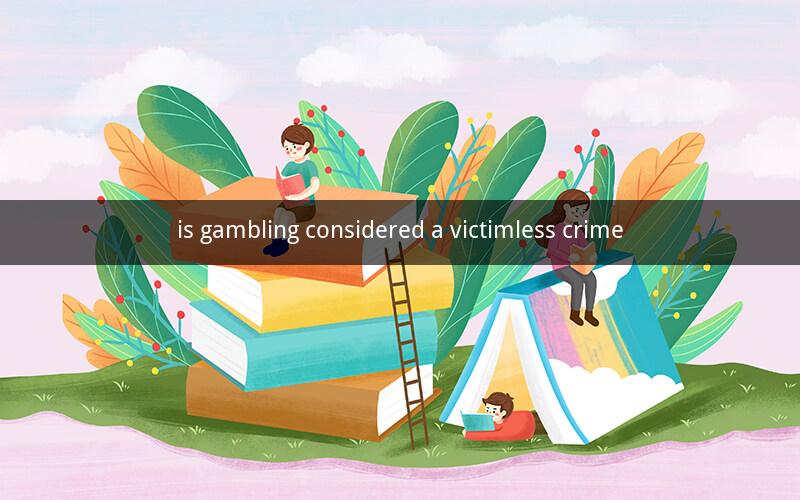
Is Gambling Considered a Victimless Crime?
Table of Contents
1. Understanding the Concept of Victimless Crime
2. The Argument for Gambling as a Victimless Crime
3. The Counterargument: Gambling's Impact on Individuals and Society
4. Psychological and Financial Consequences of Gambling
5. The Role of Regulation in Minimizing Harm
6. The Economic Benefits of Gambling
7. The Social and Ethical Implications
8. The Role of Addiction in the Debate
9. The Legal Perspective
10. Conclusion
1. Understanding the Concept of Victimless Crime
The concept of victimless crime revolves around the idea that certain actions, while illegal, do not result in direct harm to any identifiable victim. Proponents argue that these crimes are consensual and do not violate the rights of others. Gambling is often cited as a prime example of a victimless crime.
2. The Argument for Gambling as a Victimless Crime
Advocates for considering gambling a victimless crime argue that individuals engage in gambling freely and voluntarily. They contend that participants are fully aware of the risks involved and should be responsible for their own actions. Additionally, they argue that gambling can be a form of entertainment and a source of income for some.
3. The Counterargument: Gambling's Impact on Individuals and Society
Critics argue that gambling can have severe psychological and financial consequences for individuals and society as a whole. Problem gambling can lead to addiction, financial ruin, and even suicide. Furthermore, the societal costs of gambling-related issues, such as crime and mental health services, are significant.
4. Psychological and Financial Consequences of Gambling
The psychological impact of gambling addiction can be devastating. Individuals may experience anxiety, depression, and other mental health issues. Financially, problem gamblers may face bankruptcy, debt, and the loss of their homes. These consequences extend to family members and friends who are affected by the addicted individual's behavior.
5. The Role of Regulation in Minimizing Harm
Regulation plays a crucial role in minimizing the harm caused by gambling. Governments can impose restrictions on advertising, age limits, and the number of gambling outlets. Additionally, self-exclusion programs and gambling counseling services can help individuals struggling with addiction.
6. The Economic Benefits of Gambling
Gambling also brings economic benefits to regions where it is legal. It generates tax revenue, creates jobs, and can contribute to the development of infrastructure. However, the economic benefits must be weighed against the potential harm caused by gambling addiction.
7. The Social and Ethical Implications
The social and ethical implications of gambling are complex. On one hand, it can provide a sense of community and entertainment. On the other hand, it can lead to social problems such as gambling-related crime, family breakdown, and the exploitation of vulnerable populations.
8. The Role of Addiction in the Debate
Addiction is a central issue in the debate over whether gambling is a victimless crime. Many argue that addiction transforms gambling from a voluntary activity into a harmful behavior that affects not only the individual but also those around them.
9. The Legal Perspective
The legal perspective on gambling varies by country and region. Some jurisdictions have fully legalized gambling, while others have restricted or banned it. The legal status of gambling can significantly impact its prevalence and the associated social and economic effects.
10. Conclusion
The question of whether gambling is considered a victimless crime is multifaceted. While some argue that gambling is a personal choice with minimal harm, others emphasize the psychological and financial damage it can cause to individuals and society. A balanced approach that incorporates regulation, support for those struggling with addiction, and consideration of the economic benefits is necessary to address this complex issue.
Questions and Answers
1. What is a victimless crime?
- A victimless crime is an action that is illegal but does not result in direct harm to any identifiable victim.
2. Why do some argue that gambling is a victimless crime?
- Some argue that gambling is a victimless crime because it is a consensual activity where participants are aware of the risks involved.
3. What are the psychological consequences of gambling addiction?
- The psychological consequences of gambling addiction can include anxiety, depression, and other mental health issues.
4. How does gambling affect the economy?
- Gambling can generate tax revenue, create jobs, and contribute to the development of infrastructure, but it can also lead to social problems.
5. What role does regulation play in minimizing harm from gambling?
- Regulation can help minimize harm by imposing restrictions on advertising, age limits, and the number of gambling outlets.
6. How can addiction transform gambling into a harmful behavior?
- Addiction can transform gambling into a harmful behavior by causing individuals to prioritize gambling over other responsibilities, leading to financial and psychological damage.
7. What are some of the legal perspectives on gambling?
- The legal perspective on gambling varies by country and region, with some jurisdictions fully legalizing it and others restricting or banning it.
8. How can self-exclusion programs help those struggling with gambling addiction?
- Self-exclusion programs can help individuals struggling with gambling addiction by providing a means to avoid gambling establishments.
9. What is the economic impact of problem gambling?
- The economic impact of problem gambling can include costs related to mental health services, crime, and the loss of productivity.
10. How can a balanced approach to gambling be achieved?
- A balanced approach to gambling can be achieved by incorporating regulation, support for those with addiction, and considering the economic benefits while addressing potential harm.